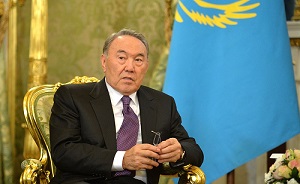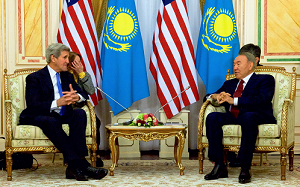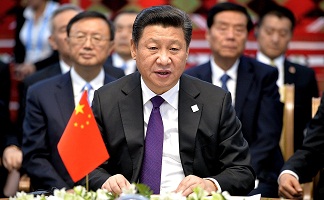China – Pakistan Economic Corridor: An Opportunity for Central Asia?
By Fuad Shahbazov
June 19, 2017, the CACI Analyst
In May 2017, China hosted an international summit in Beijing gathering 28 heads of state from four continents and representatives of various international organizations. The summit was devoted to the Belt and Road Initiative, referring to overland and maritime routes across the Eurasian landmass. One of the most significant moments of the summit was the meeting between China’s and Pakistan’s leaders and the signing of a new agreement (MoU), adding to the US$ 46 billion already pledged for the China-Pakistan Economic Corridor (CPEC), a network of rail, road and energy infrastructure. During the event, Pakistan’s Prime Minister Nawaz Sharif met with the leaders of Kazakhstan, Uzbekistan, and Kyrgyzstan, requesting their investment in CPEC.
Revere or Reverse? Central Asia between Cyrillic and Latin Alphabets
By Farkhod Tolipov
June 6, 2017, the CACI Analyst
In April this year, Kazakhstan's President Nursultan Nazarbaev made it clear that Kazakhstan intends to change from the Cyrillic to the Latin alphabet. Thereby, this country took a new step in the overall course of its post-Soviet development as an independent state. Kazakhstan became the third state in Central Asia after Uzbekistan and Turkmenistan that decided to undergo such a change. Kyrgyzstan will supposedly be the next country to move in the same direction. The change of alphabets was met with geopolitically saturated aversion in Russian political circles and media, in contrast to the relatively peaceful manner with which it is being introduced in the countries themselves.

China’s Agroindustrial Capacity Cooperation in Central Asia
By Tristan Kenderdine
April 28, 2017, the CACI Analyst
There are two major policy shifts occurring simultaneously in China which will open new markets for Central Asian agroindustrial development and exports. The first is monumental. China is not only relaxing subsidies on domestic agricultural production while promoting the market mechanisms required to import more grains, it is genuinely letting go of domestic production as a food security ballast, and will begin to let other nation states feed its populace. The second is industrial international capacity cooperation, the policy solution to China's overcapacity malaise. The program envisions moving whole production chains offshore, essentially shifting Chinese industrial capacity to external geographies.

Central Asia: An Opportunity for the Trump Administration
By Stephen Blank
March 22, 2017, the CACI Analyst
Central Asia has never ranked high on U.S. priorities. That is unlikely to change under the Trump Administration. Yet recent developments in Central Asia, particularly in Uzbekistan, do offer an opportunity to advance U.S. interests through a greater economic-political presence in the region, whilst also countering growing Chinese economic dominance and Russian efforts at military hegemony at a relatively low cost. The two key countries in this possible opportunity for the U.S. are Uzbekistan and Kazakhstan.

China’s Long March into Central Asia: How Beijing Expands Military Influence in Tajikistan
By Fuad Shahbazov
February 21, 2017, the CACI Analyst
China's gradually increasing economic role in Central Asia since the early 2000s is unsurprising considering the region's geographic proximity to China's dynamic economy. In this context, Beijing has carefully shaped a military strategy in the region, particularly in neighboring Tajikistan. In September 2016, Beijing offered to finance and build several outposts and other military facilities (in addition to the Gulhan post, which was opened in 2012) to beef up Tajikistan's defense capabilities along its border with Afghanistan, whereas China's and Tajikistan's militaries performed a large counter-terrorism exercise in October 2016. These unexpected actions have raised concerns in Russia over rising Chinese influence in Tajikistan.








